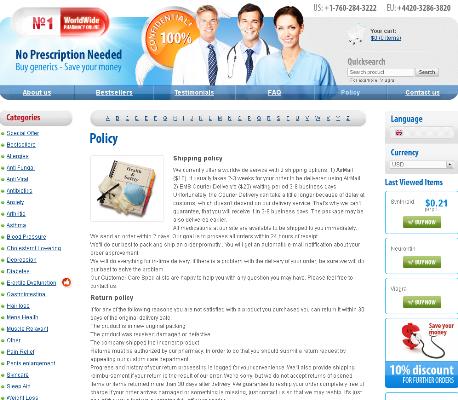| Royal City Drugs |
To Visit Online Pharmacy Click HERE ↓
Accutane Vs Other Acne Treatments: Pros and Cons
How Accutane Works Differently Than Other Treatments
Accutane, known generically as isotretinoin, targets acne at its root by shrinking oil glands deep in the skin. This powerful action drastically reduces oil production, leaving bacteria and clogged pores with little chance to cause further breakouts. Unlike topical treatments and antibiotics that address surface symptoms or fight bacteria, Accutane rewires oil production over time. The result is not just temporary relief, but often long-lasting remission, offering hope to those who have struggled with persistent acne for years.
| Treatment Type | Main Action | Long-Term Results |
|---|---|---|
| Accutane | Reduces oil gland size and activity | Often permanent remission |
| Topicals/Antibiotics | Treats surface bacteria/symptoms | May require ongoing use |
Comparing Effectiveness for Severe Versus Mild Acne

When it comes to stubborn, cystic acne that defies over-the-counter remedies, Accutane has gained a powerful reputation. Most dermatologists consider it the “last line of defense” for severe forms of acne, with success rates often exceeding 80% for deep, inflamed breakouts. In contrast, many topical creams or oral antibiotics may only provide partial or temporary relief for these challenging cases.
For individuals with mild to moderate acne, however, Accutane is rarely recommended as a first step. Other options like benzoyl peroxide, salicylic acid, or retinoids typically yield satisfactory results with fewer risks and side effects. As such, the choice depends on acne severity and a patient’s unique skin response.
Choosing the right treatment means understanding the strengths of each solution. Accutane offers dramatic, long-lasting improvement for those battling severe acne, often after everything else has failed. Meanwhile, lower-intensity remedies are frequently sufficient for those dealing with occasional blemishes or manageable outbreaks, giving patients a range of paths toward clearer skin.
Side Effects: What to Expect from Each Option
When starting accutane, many users notice changes quickly—from dry lips and skin to sensitivity to sunlight. Although these effects are common, some people also report muscle aches or temporary hair thinning. More serious risks, such as mood changes or liver impact, exist but usually occur with high doses or prolonged use, making regular blood tests a necessity during treatment.
Other common acne treatments, like topical creams and antibiotics, generally cause milder side effects such as mild irritation, redness, or occasional stomach upset. Hormonal options, such as birth control pills or spironolactone, can lead to their own set of side effects like weight fluctuations or mood swings. Ultimately, understanding what your body may experience helps guide a choice that balances clear skin with everyday comfort.
Treatment Timeline: Quick Fix or Long Commitment?

For many, beginning accutane can feel like embarking on a marathon rather than a sprint. Most courses last several months, and results—even dramatic ones—often appear gradually. In contrast, topical creams and antibiotics usually offer quicker visible changes, but their benefits can be less enduring and may require ongoing use to maintain clear skin.
This means accutane demands patience, yet it offers the possibility of long-lasting remission. Meanwhile, faster-acting treatments could fit those seeking immediate relief but may lack accutane’s lasting impact after stopping therapy.
Costs and Accessibility of Popular Acne Solutions
Navigating acne treatment options can be as much about budget as about effectiveness. Accutane, for instance, often comes with higher upfront costs, especially without insurance coverage. Over-the-counter creams and topical prescriptions may seem more affordable initially, but recurring purchases can add up over time. Accessibility also matters—Accutane requires specialist supervision and frequent blood tests, while topical treatments are available at local pharmacies. Here's a quick cost comparison:
| Treatment | Average Cost (USD) | Prescription Needed? |
|---|---|---|
| Accutane | $300–$500/month | Yes |
| Topical Creams | $10–$80/month | Sometimes |
| Antibiotics (oral/topical) | $20–$100/month | Yes |
Lifestyle Changes and Daily Impact on Users
Starting Accutane requires significant adjustments in daily routines. Users may need to avoid sun exposure, adhere strictly to daily pill schedules, and integrate frequent moisturizing to combat excessive skin dryness. The need for regular medical check-ins and blood tests can impact work or school schedules, making time management crucial.
Compared to topical treatments or antibiotics, Accutane’s regimen often feels more demanding. Other treatments might simply involve applying a cream or taking an occasional pill, causing minimal disruption to everyday habits. Accutane, however, asks users to be vigilant about dietary fat intake, birth control measures for women, and managing potential mood changes.
The experience can also affect social activities. Dry lips, skin flaking, and photosensitivity may require users to keep lip balms, creams, and sunscreen on hand. This constant vigilance becomes part of their daily life, reminding users of the treatment’s intensity and the commitment it demands.






Email Us
Fill out all the fields below and press submit, a rep will contact you as soon as possible.

